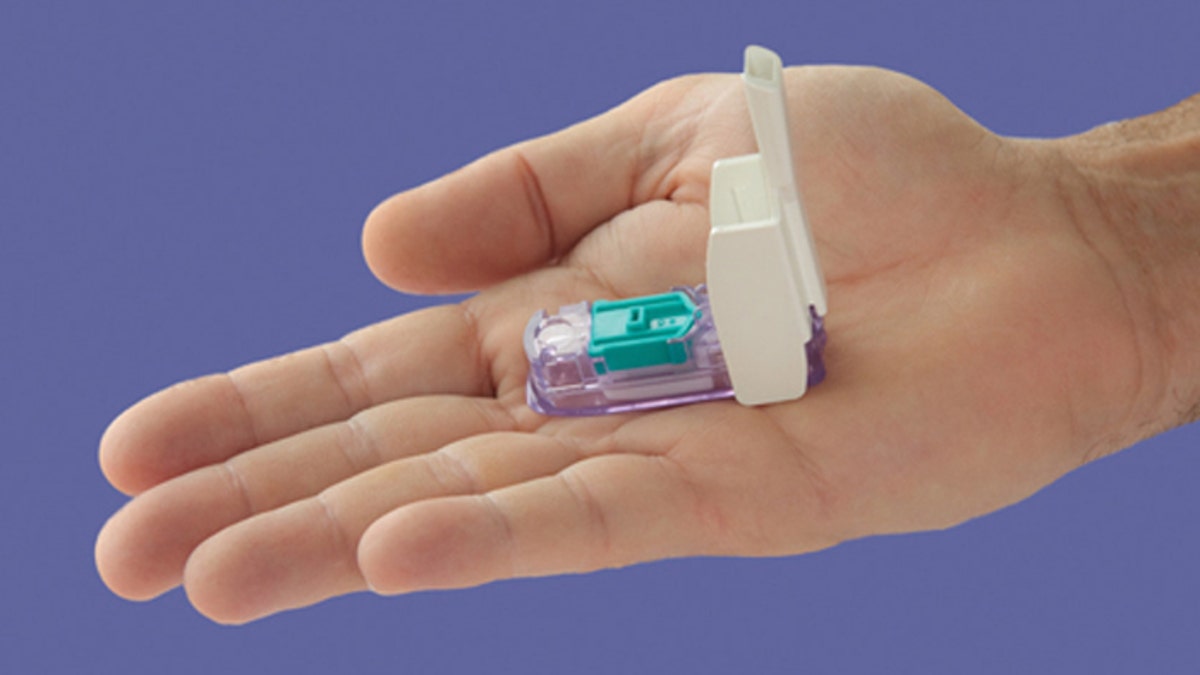
Afrezza inhaler (MannKindCorp.com)
An inhaled insulin device made by MannKind Corp proved more effective than injected and oral treatments in trials, potentially improving the quality of life for millions of diabetics and creating a multi-billion dollar opportunity for the company.
MannKind shares rose as much as 27 percent in morning trade.
The product, Afrezza, is a whistle-sized inhaler that delivers powdered insulin to adults with Type 1 and Type 2 diabetes. Given the ease of use compared with regular insulin shots, it has the potential to capture a big share of the global insulin market.
The number of diabetics worldwide is projected to cross half a billion by 2030. According to a July report by Transparency Market Research, the global insulin market is expected to reach $32 billion in 2018.
MLV & Co analyst Graig Suvannavejh expects Afrezza to get regulatory approval, but said the bigger question is whether the company can successfully commercialize the product.
"I think it really will depend on who the exact partner is, as this product is going to require a lot of education, a lot of heavy lifting," Suvannavejh said.
He estimates U.S. and European sales of about $3 billion for Afrezza by 2025.
The inhaled insulin market has seen high-profile commercial failure in the past. Pfizer Inc withdrew Exubera in 2007 due to poor sales. The large size of the device and a high price were blamed for its failure.
Suvannavejh said a potential partner for MannKind could come from among such major diabetes players as Denmark's Novo Nordisk, French drugmaker Sanofi, Bristol-Myers Squibb, Merck & Co Inc, Eli Lilly & Co and Johnson & Johnson.
Sweet data
Afrezza is a flagship product for MannKind, whose shares have risen nearly 50 percent over the past three months in anticipation of positive data from the two trials.
Results from the two studies included a reduction in fasting blood glucose levels and lower incidences of hypoglycemia — a side-effect of taking insulin that leads to dangerously low sugar levels.
MannKind said it expects to submit data from the trials to the U.S. Food and Drug Administration in the fourth quarter ending December.
The FDA rejected Afrezza in early 2011 and asked the company to conduct two clinical trials to prove that the second-generation of the device was equivalent to its first-generation inhaler.
MannKind had initially filed for approval based on data from the first-generation device, before updating the application to the newer device.
The first trial, named Study 171, compared Afrezza with Novo Nordisk's injected insulin NovoLog, and showed that the second-generation device was comparable to the first-generation inhaler.
The second trial, named Study 175, showed Afrezza was better in reducing patients' A1C levels - a measure of blood glucose control - compared to oral therapy.
Diabetics typically start out on oral medicine but often need to move on to insulin shots to regulate blood-sugar levels.
The company has another experimental diabetes therapy - called MKC253 - in development, along with two potential cancer treatments.
MannKind shares were trading up 15 percent at $7.91 on the Nasdaq on Wednesday.
